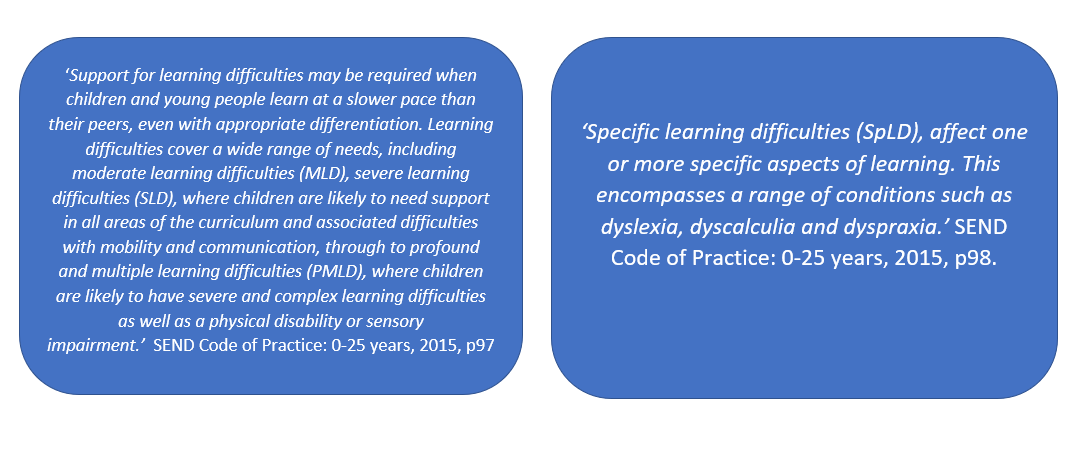Cognition and Learning

The SEND Code of Practice 2015 describes the broad area of need of ‘Cognition and learning’ as including those pupils with Specific Learning Difficulties (SpLD), Moderate Learning Difficulties (MLD), Severe Learning Difficulties (SLD), and Profound and Multiple Learning Difficulties (PMLD).

See below for more information regarding these areas of need.
Dyslexia
According to the British Dyslexia Association, Dyslexia is a Specific Learning Disabilities (SpDL) which primarily affects reading and writing skills. However, it does not only affect these skills. Dyslexia is actually about information processing. Dyslexic people may have difficulty processing and remembering information they see and hear, which can affect learning and the acquisition of literacy skills. Dyslexia can also impact on other areas such as organisational skills.
It is important to remember that there are positives to thinking differently. Many dyslexic people show strengths in areas such as reasoning and in visual and creative fields.
See the attachments on this page for the Dyslexia Presentation delivered during our SEND Coffee Morning!
Dyspraxia
According to the NHS, Dyspraxia is a common disorder that affects movement and co-ordination. Dyspraxia does not affect your intelligence. It can affect your co-ordination skills – such as tasks requiring balance, playing sports or learning to drive a car.
Dyscalculia
Dyscalculia is a specific and persistent difficulty in understanding numbers which can lead to a diverse range of difficulties with mathematics. It will be unexpected in relation to age, level of education and experience and occurs across all ages and abilities.
Mathematics difficulties are best thought of as a continuum, not a distinct category, and they have many causal factors. Dyscalculia falls at one end of the spectrum and will be distinguishable from other maths issues due to the severity of difficulties with number sense, including subitising, symbolic and non-symbolic magnitude comparison, and ordering. It can occur singly but often co-occurs with other specific learning difficulties, mathematics anxiety and medical conditions.

